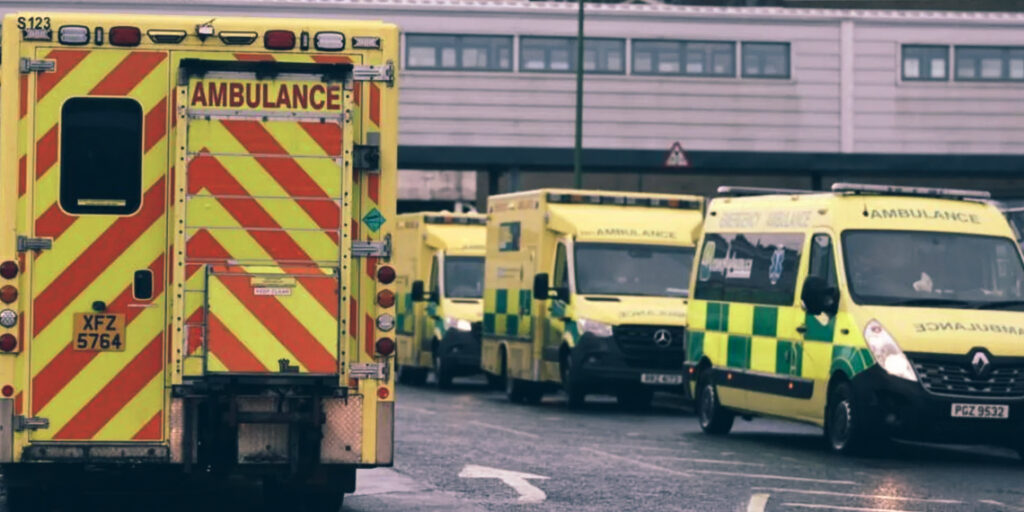A patient in Northern Ireland waited an alarming 19 hours in the back of an ambulance outside an emergency department, according to Dr. Nigel Ruddell, Medical Director of the Northern Ireland Ambulance Service (NIAS). Speaking to BBC News NI, Dr. Ruddell attributed the unprecedented delay to “sustained and extreme pressure” on the healthcare system caused by a combination of respiratory illnesses and a lack of hospital capacity.
Ambulance Crews Face Long Delays
Dr. Ruddell revealed that ambulance crews are experiencing significant delays in transferring patients to emergency departments due to a “lack of flow” in the system. “Our crews are effectively stuck outside emergency departments,” he explained, adding that challenges in discharging patients from hospitals back into the community exacerbate the issue.
The NIAS declined to provide further comment, but Dr. Ruddell emphasized that the situation has become dire. “There is no doubt we are facing sustained extreme pressure due to large numbers of patients presenting with respiratory illnesses across all hospital sites,” he said.
Healthcare System Under Severe Strain
The Department of Health (DoH) acknowledged the severe pressures on Northern Ireland’s healthcare system, noting that the current situation has been worsened by a predictable rise in flu, COVID-19, and other winter illnesses.
Dr. Michael Perry, Vice Chair of the Royal College of Emergency Medicine in Northern Ireland, called the 19-hour wait “completely unacceptable” and warned that such delays are becoming increasingly common. “We don’t have room to offload ambulances into emergency departments,” he said, highlighting a lack of hospital beds and an overwhelmed emergency care system.
DoH data showed that over the weekend, 1,258 people attended emergency departments across Northern Ireland, with 954 still waiting to be seen and 462 queuing for a bed. The Southern Trust reported the highest numbers, with 332 emergency department visits and 105 patients waiting for a bed.
Calls for Systemic Change
Medical professionals are calling for systemic changes to address ongoing issues in the healthcare system. Dr. Alan Stout of the British Medical Association (BMA) said the system cannot continue to operate as it has. “We are dealing with winter pressures year-round,” he said, urging reforms in how patients are managed and treated.
Meanwhile, Rita Devlin of the Royal College of Nursing stressed the need for long-term planning. “We need more district nurses, more acute care teams at home, and a fundamentally different approach to healthcare delivery,” she said.
Government’s Winter Preparedness Plan
In response to mounting pressures, Health Minister Mike Nesbitt recently launched a Winter Preparedness Plan. This includes additional funding for GP and residential care homes, expanding phone-first services across all trusts, and implementing vaccination programs.
Nesbitt defended the plan, stating, “The planning process for winter starts in spring to mitigate, as far as possible, the additional pressures we know we will face.” However, healthcare leaders remain skeptical, arguing that deeper systemic reforms are necessary to prevent recurring crises.


